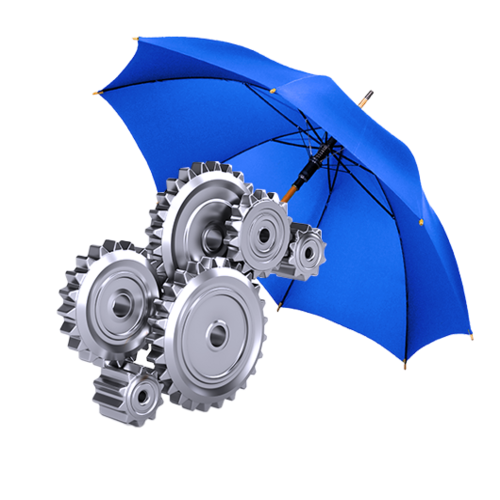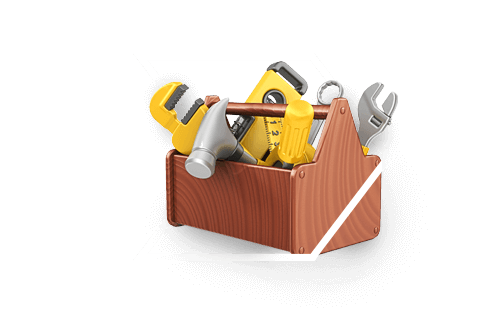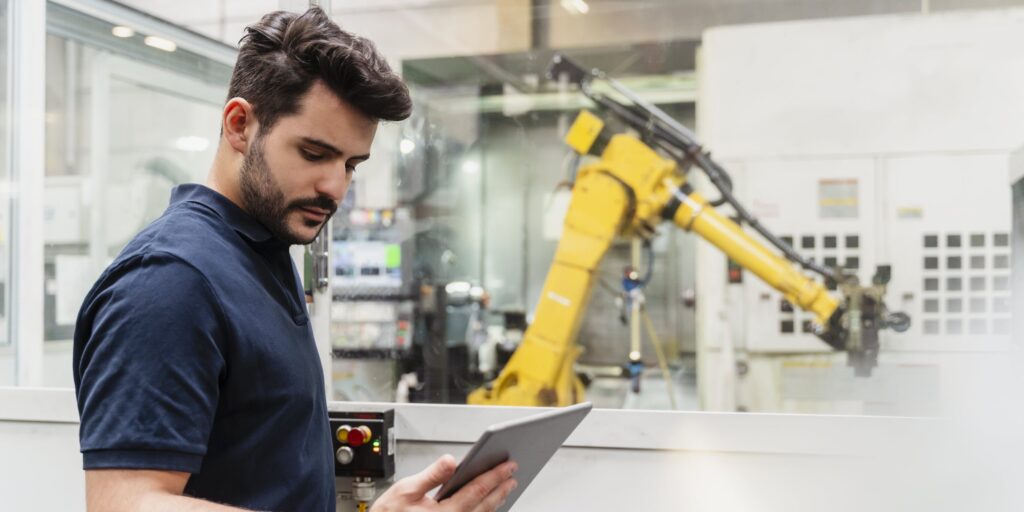Home > Machinery Breakdown
Machinery Breakdown Insurance

What is Machinery Breakdown Insurance Policy?
Machinery breakdown insurance protects industrial and factory machines. This
insurance covers the costs associated with unintentional mechanical failures and
physical damages. It also addresses the expenses for repairing or replacing
damaged machine components.Commonly insured machinery under this policy includes generators,
compressors, industrial ovens, printing presses, boilers, and various other
mechanical and electrical equipment utilized in industries. Some insurers offer
additional coverage options or riders to further protect against potential risks or
unforeseen expenses such as price fluctuations, air freight, machinery
foundation, and customs duties.
When determining the replacement cost of damaged machinery, a machinery breakdown insurance policy typically examines two situations:
-
Partial Loss :
Should there be a partial loss to the machinery, the policy covers the entire cost of their placement parts. This includes labor charges, air freight fees, customs duties, and expenses related to dismantling and re-erecting the machinery. -
Total Loss :
In this scenario, the insured amount is based on the machinery's actual value prior to the damaging event, subtracting any relevant depreciation.

Features of Machinery Breakdown Insurance Policy
-
Offers financial protection by covering the expenses of repairing or replacing complex machinery.
-
Insures machinery, whether it's operational, idle, or being dismantled for tasks like maintenance, inspection, relocation, or reassembly—provided these activities happen on the same premises.
-
Delivers tailored coverage that matches the specific machinery used by a business and its risk tolerance.
-
Assists businesses in strategically planning and allocating resources with the confidence of having a backup in case of unexpected machinery failures.
Who Needs Machinery Breakdown Insurance Policy?
Machinery breakdown insurance is apt for a vast array of businesses spanning different
sectors. Below are some business types that stand to gain from such a policy: Heavy engineering fi rms, Industrial plants and facilities, Construction companies, Transportation and logistics companies, Power plants and water treatment centers, Enterprises in the textile sector

Why get
Machinery Breakdown Insurance Policy?
In commercial and industrial realms, machinery is pivotal for operations. A breakdown
or malfunction can instigate considerable financial setbacks due to repair expenses,
production halts, and even potential operational interruptions. Securing machinery
breakdown insurance becomes vital for enterprises that are significantly dependent on
machinery and equipment.
When machinery encounters issues, it often triggers operational hindrances and
downtime, leading to postponed production, unmet timelines, and compromise
deficiency.
In such circumstances, machinery breakdown insurance steps in, offering coverage for
indispensable repair or replacement costs. This helps alleviate the monetary strain on
the organization. In essence, with machinery breakdown insurance, fi rms can delegate
a segment of the aforementioned risks to the insurance company. This empowers
businesses to hone in on their principal activities, freeing them from perpetual
apprehension over machinery and equipment mishaps.
About Machinery Breakdown Insurance Policy
What leads to machinery breakdown?
Machinery breakdowns can stem from multiple causes, encompassing both internal and
external factors. Common culprits include mechanical and electrical faults, human
errors, wear and tear, friction-induced heat, corrosion, short circuits, and voltage
fluctuations. Mistakes in machinery operation, such as inaccurate settings or control
inputs, component malfunctions, and inadequate maintenance, also contribute to
breakdowns.
How is the premium for machinery breakdown insurance determined?
The calculation of a machinery breakdown insurance premium is influenced by several
criteria. Insurers typically evaluate the machinery's value, type, age, condition, usage,
and maintenance record. Additionally, the nature and specific operations of the
business, its location, and the overall risk profile of the enterprise also play crucial roles
in determining the premium.
How do machinery breakdown and failure differ?
"Machinery breakdown" denotes a sudden, unforeseen cessation of a machine's
functioning caused by reasons like mechanical glitches, electrical anomalies,
component malfunctions, or unexpected external events. Such breakdowns usually lead
to an immediate halt in operation. In contrast, "machinery failure" is a more expansive
term, signifying various malfunctions or a decline in machinery performance over time.
While breakdowns are abrupt, incapacitating the machinery instantly, failures can
manifest gradually, eroding machine efficiency or performance incrementally.
What documentation is needed to initiate a machinery breakdown insurance claim?
To kick start a claim under machinery breakdown insurance, the policyholder is typically
required to furnish identification proofs, the machinery invoice, the policy document, and
a diagnostic statement from a qualified engineer delineating the nature and extent of the
breakdown.
How can machinery breakdowns be prevented?
Averting machinery breakdowns mandates a forward-looking stance towards
maintenance, operation, and risk containment. Effective preventive measures include:
Instituting a rigorous preventive maintenance regimen. Utilizing sophisticated monitoring tools to gauge machinery health, pinpointing looming issues before they escalate.
Ensuring operators and maintenance staff are well-trained in equipment operation, upkeep, and safe handling.
Conducting regular inspections of pivotal components.
Maintaining the cleanliness of machinery, keeping it devoid of dust, debris, and other contaminants.
Always operating machinery within its stipulated load confines.
Instituting a rigorous preventive maintenance regimen. Utilizing sophisticated monitoring tools to gauge machinery health, pinpointing looming issues before they escalate.
Ensuring operators and maintenance staff are well-trained in equipment operation, upkeep, and safe handling.
Conducting regular inspections of pivotal components.
Maintaining the cleanliness of machinery, keeping it devoid of dust, debris, and other contaminants.
Always operating machinery within its stipulated load confines.

